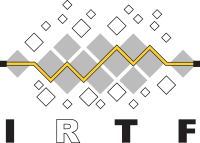The COIN research group (COINRG) will explore existing research and foster investigation of “Compute In the Network” and the resulting impacts of programmability in the data plane. The goal is to investigate how to harness and to benefit from this emerging disruption to the Internet architecture to improve network and application performance as well as user experience. COIN will both review existing work as well as to encourage research solutions that comprehend the re-imagining of the network to be a place where routing, compute, and storage blend.
COIN will address the ongoing shift from data center (DC) toward edge computing and will debate whether this shift can be viewed as a cloud-edge continuum. COIN specifically will focus on the evolution necessary for networking to move beyond packet interception as the basis of network operation and into computation. WCOIN also wants to move beyond rudimentary languages for programming switches into the richer programmability that is required to support emerging workloads, such as edge network analytics, machine learning and deep learn. Such applications not only need access to more general-purpose languages, but also need to operate in conjunction with local and remote caches, computing resources, dynamic control points, and data stewardship.
Orchestration of end-to-end resources between the DC network and the edge is another key topic to address in COIN. In particular, the RG will examine orchestration with increasingly heterogeneous distributed components and draw inspiration from current approaches (e.g., Kubernetes, Swarm) that are likely to need updating, extending, and/or simplifying in multi-domain network environments.
Use-case-driven requirements, gathered from next-generation applications and services (e.g., video streaming, immersive AR/VR, autonomous/connected vehicles, industrial IoT), may lead to new architectures, which employ novel ways to perform functional distribution and leverage co-design of layered approaches.
COIN will pay close attention to work in DINRG and ICNRG in particular, and will work carefully to keep a focused scope despite the breadth of initial discussions.
COIN will interact closely with the IETF transport area to avoid proposals that would increase the friction between the end-to-end privacy and security of new transport protocols and the need for in-network computations. The SPUD efforts in the IETF already addressed some of these challenges and COIN intends to continue the dialog around evolving end-to-end semantics of IETF transports protocols. The RG will be aware that targeting the space of multi-party computations may impact or be impacted by crypto/security properties. COIN will foster discussion on what could (or could not) be exposed across network layers, including parameters that might enable QoS/QoE, orchestration dynamics, and seamless mobility.
In order to achieve its goals, COIN will expose and advance research on distributed, decentralized networks and resources required by DC, edge and ambient computing. COIN will investigate the implications of increased heterogeneity and limitations that arise if/when DC and edge computing employ a common architecture, programmable networks and API and interchangeable functionality in the Internet. An assumption will be that to improve Internet performance, the network, compute and storage resources must work jointly in close partnership throughout the network, while servicing data-intensive distributed applications.
SCOPE
- Research on solutions to use programmable network devices, languages and abstractions to implement network functions for improved Internet performance.
- Research on use case driven requirements analysis: the cloud continuum from the data center to edge networks and beyond including in-network computing using programmable switches. Identify potential benefits to these networks from in-network functionality, including but not limited to compute, cache, manage, control, etc.
- Research on novel architectures, data-plane abstractions and new network protocol designs to efficiently federate decentralized computing resources, across the infrastructure regardless of where in the network the compute is placed (the DC, the core, the edge, and even in the end-user devices).
- Research on potential new transport protocol, new privacy and security mechanisms required or enabled by in-network compute.
Chairs
The COINRG is chaired by Marie-José Montpetit, Jeffrey He and Eve Schooler.
Mailing List
The COINRG mailing list is coin@irtf.org. To subscribe or access the list archives, visit the mailman page.
Datatracker
Documents and meeting materials for the COINRG can be found on the IETF datatracker.
Timeline
The COINRG was chartered on 2019-02-15.
